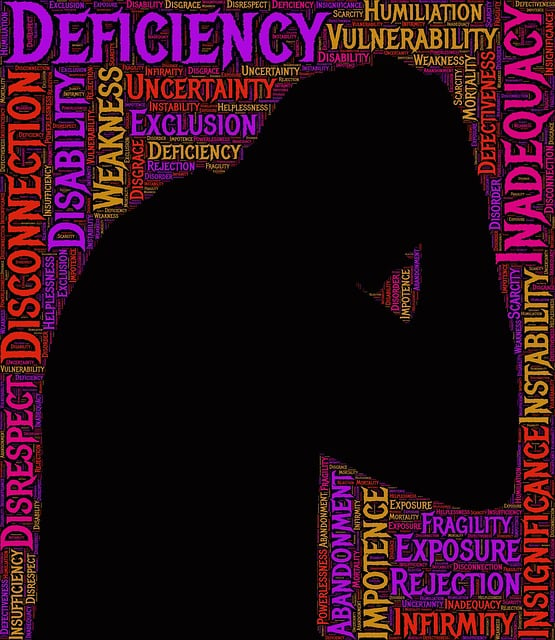For Hebrew-speaking adolescent teens, access to therapy in their native language is crucial. Organizations offer specialized support including CBT, group sessions, and creative techniques to address anxiety, depression, and stress exacerbated by cultural factors and language barriers. Cultural competency training for healthcare providers ensures sensitive care, while open communication and active listening in family settings build resilience. School and community interventions equip students with coping strategies, reducing stigma and making therapy more accessible. These tailored initiatives foster mental wellness, encouraging open conversations about emotional health and building healthy coping mechanisms.
Mental wellness promotion among adolescent teens, particularly those from Hebrew-speaking backgrounds, is a pressing issue demanding our attention. This article delves into the intricate world of adolescent mental health, shedding light on common challenges faced by Hebrew-speaking teens. We explore the transformative power of therapy, offering insights into effective treatment approaches tailored for this demographic. Additionally, we discuss creating supportive environments and empowering teens with self-care strategies to build resilience. By understanding these aspects, we can significantly contribute to improving mental wellness for this vital age group.
- Understanding Adolescent Mental Health: Unveiling Common Challenges in Hebrew-Speaking Teens
- The Power of Therapy: Exploring Effective Treatment Approaches for Youth
- Creating a Supportive Environment: Family, School, and Community Interventions
- Empowering Teens: Self-Care Strategies and Building Resilience
Understanding Adolescent Mental Health: Unveiling Common Challenges in Hebrew-Speaking Teens

Adolescent mental health is a critical aspect that requires tailored understanding and support systems, especially within Hebrew-speaking communities. Teenagers facing challenges often struggle with issues like anxiety, depression, and stress, which can significantly impact their overall well-being. These problems may be exacerbated by unique cultural factors and language barriers when seeking help. Many Hebrew-speaking teens might feel more comfortable opening up in their native language, making access to therapy a valuable asset.
The journey towards mental wellness starts with recognizing common challenges and providing accessible resources. Organizations specializing in mental wellness for adolescents can play a pivotal role in offering tailored support and education. Through therapeutic sessions, self-awareness exercises, and stress management workshops conducted in Hebrew, these organizations cater to the specific needs of Hebrew-speaking teens. Such initiatives foster an environment where teenagers feel empowered to discuss their struggles openly and take control of their mental health.
The Power of Therapy: Exploring Effective Treatment Approaches for Youth

For many Hebrew-speaking adolescent teens, therapy serves as a powerful tool for navigating and overcoming mental health challenges. Effective treatment approaches, tailored to their unique needs, can significantly enhance their overall well-being. Cognitive Behavioral Therapy (CBT), for instance, has proven successful in managing anxiety disorders, one of the most prevalent mental health concerns among youth. This therapeutic method equips teens with valuable coping strategies by identifying and challenging negative thought patterns, thereby fostering a sense of control and improving emotional regulation.
Beyond individual therapy, group sessions can create a supportive environment, encouraging peer connections and shared experiences. In light of the growing importance of mental health education programs design, therapists often incorporate creative techniques to engage teens and promote self-awareness. Additionally, healthcare provider cultural competency training plays a crucial role in ensuring that Hebrew-speaking adolescents receive culturally sensitive care, addressing unique familial and cultural dynamics that may impact their mental wellness journey.
Creating a Supportive Environment: Family, School, and Community Interventions

Creating a supportive environment is pivotal in promoting mental wellness, especially for adolescents and teens. In family settings, fostering open communication and understanding can significantly impact a young person’s mental health journey. Encouraging parents and caregivers to practice compassion cultivation techniques, such as active listening and empathetic responses, helps create a safe space for teens to express their thoughts and emotions freely. This environment of acceptance and non-judgment is essential for building resilience and trust in seeking support when needed.
School and community interventions play a complementary role in this process. Incorporating mental wellness coaching programs into educational institutions can empower students with coping strategies, stress management skills, and self-awareness. These programs often include activities that promote self-care routine development, teaching teens to prioritize their mental health alongside academic pursuits. Similarly, community initiatives focused on raising awareness about adolescent mental health can reduce stigma, encouraging young people, especially those speaking Hebrew, to access therapy without fear of judgment or discrimination.
Empowering Teens: Self-Care Strategies and Building Resilience

For Hebrew speaking adolescent teens, promoting mental wellness begins with equipping them with effective self-care strategies. Encouraging open conversations about emotional health and providing accessible resources like therapy for adolescent teens can significantly contribute to their well-being. By fostering a culture of resilience, we empower young individuals to navigate life’s challenges with adaptability and strength.
Implementing public awareness campaigns and stress management workshops specifically designed for this demographic can play a pivotal role in the development of healthy coping mechanisms. These initiatives, coupled with organized Mood Management programs, offer valuable tools for teens to build resilience and enhance their ability to handle stress and difficult emotions.
Mental wellness promotion is a multifaceted approach that combines understanding adolescent mental health challenges, providing effective therapy for Hebrew-speaking teens, creating supportive environments at home, in school, and within the community, and empowering teens with self-care strategies. By implementing these interventions, we can foster resilience and ensure that young individuals receive the necessary support to thrive. Effective therapy for adolescent teens, tailored to their unique needs, is a powerful tool in this journey towards mental wellness, enabling them to navigate life’s challenges with greater ease.














